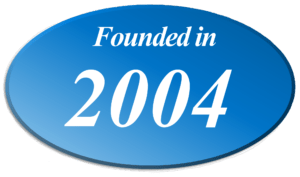 Part two of a four-part series.
Part two of a four-part series.
Click here for full remarks
On September 13, 2018 we were asked to speak to the Memphis Chapter of the Association of Fundraising Professionals (AFP). The monthly luncheon was held, appropriately, at the National Civil Rights Museum. The following is part two of our remarks. We share these as we believe they are important to all of us who care about the future of the nonprofit sector.
Remarks were written by Melvin and Pearl Shaw and delivered by Pearl Shaw.
We are not far removed from a time when a black person was not welcomed in a white person’s home. A time when it would be more than inappropriate for a black person to ask a white person for a charitable donation. If you look and listen closely you may find that it is still challenging for black voices to be heard and taken seriously within predominantly white organizations. For example, people will laugh and understand the joke about a white woman who makes a suggestion that is ignored, and then watches as — seconds later — a white man makes the same suggestion and it is welcomed as “pure genius.” We don’t always see how that plays out in terms of race.
This is still an unspoken barrier. “We” still question the leadership and qualifications of people of color. “We” assess an organization’s capabilities by who “we” know on the board, or in executive leadership.
We — all of us — have to start this conversation, and ultimately change our policies and practices if we are to develop and grow leadership that serves and represents all of us.
And “we” have to stay at the table during the process. We can’t retreat to our corners, or create organizations that better represent “our” interests, when the interests of others become a priority. We have to be more than “me” — we have to become a “we.”
Personally, people have always asked me “Who are you?” or “Where are you from?” when being polite. Other times, more bluntly, “What are you?” I am a mixed-heritage Arab American woman. I am married to an African American man. Our blended family is diverse in almost every way imaginable.
Today, as fundraisers, nonprofit leaders, and as a local AFP chapter we get to ask ourselves the same question: who are we?
It is not 1968, but that does not mean that Memphis 1968 is not a part of our history. Or that slavery, mandatory segregation as a public policy, redlining, discriminatory lending, violence, prejudice, and “white flight” are not also a part of who we are and why we are where we are today.
In terms of philanthropy and fundraising, there is a perception that only one segment of our community is in a position to give money and set policy. Yet the truth is that people of color are fast positioning themselves to give back because of our increased education, wealth, and changes in the dominant culture.
It is incumbent upon us as professionals that we grow to understand the different cultures that comprise our community: how they think, what they value. We need to get to know their leadership, and to understand what is important to them. We need to build platforms that allow us to hear voices different from our own and to engage those voices in our work … even when that means our work might change by including “someone else’s” priorities.
Part three is next week. Click here for full remarks.
Copyright 2018 – Mel and Pearl Shaw
We are all in this together – and that’s a good thing. For help growing your fundraising visit www.saadandshaw.com.










